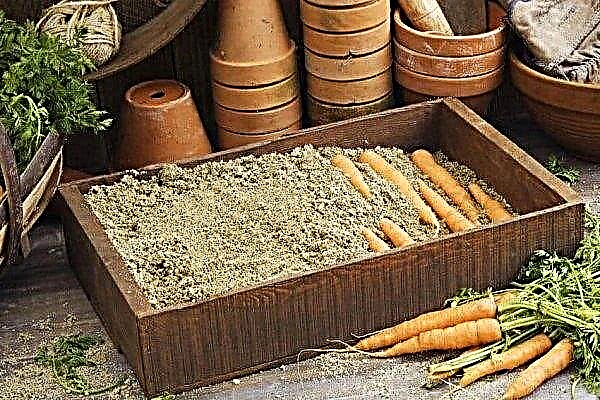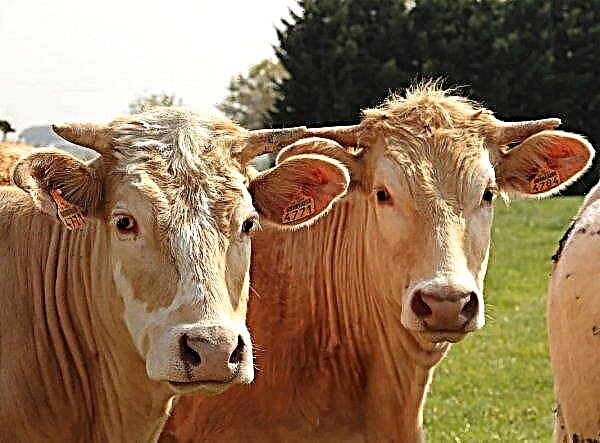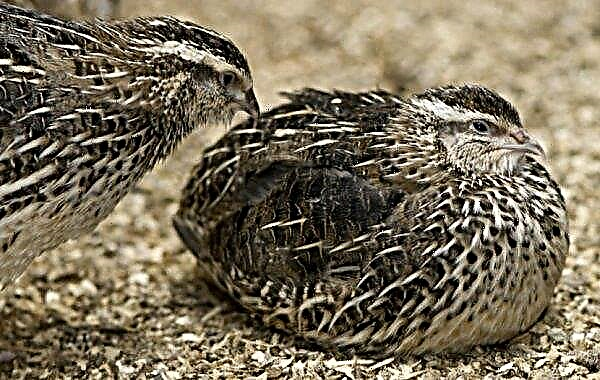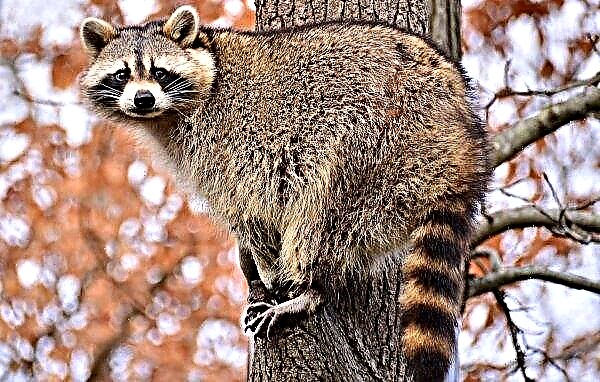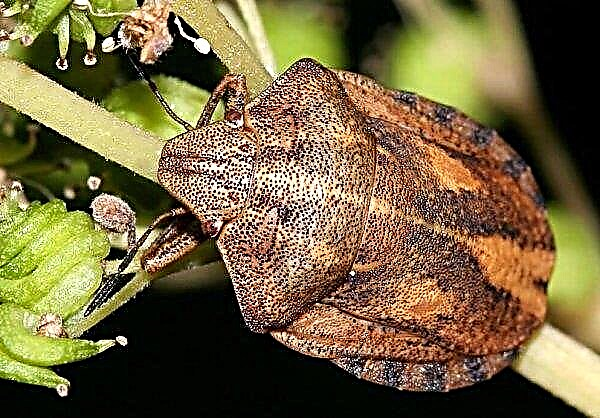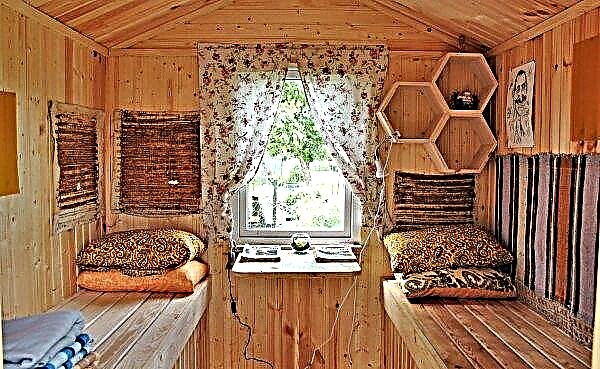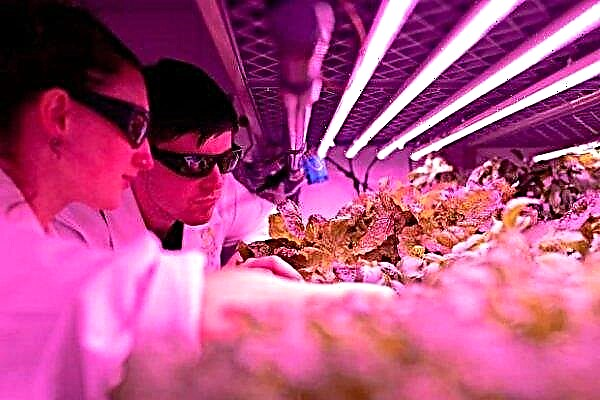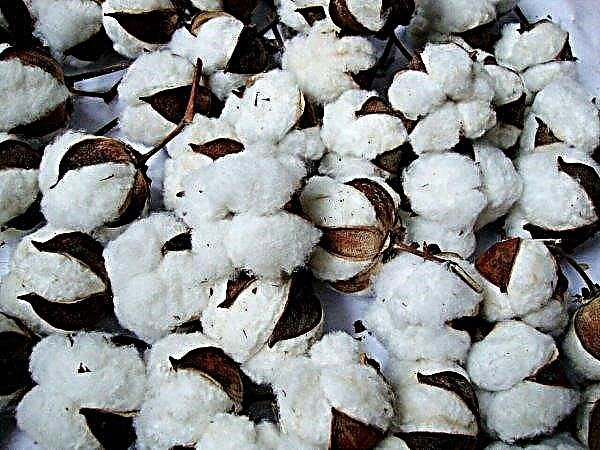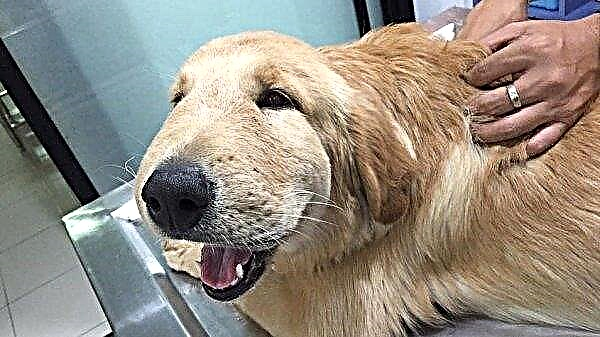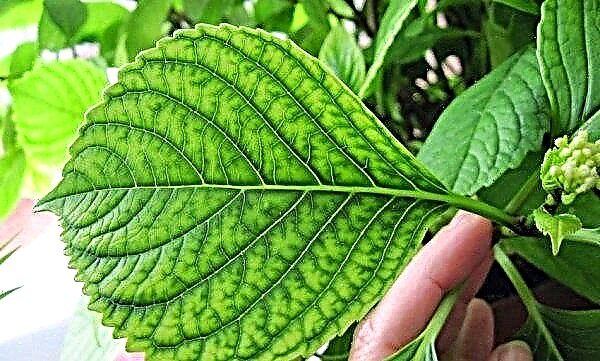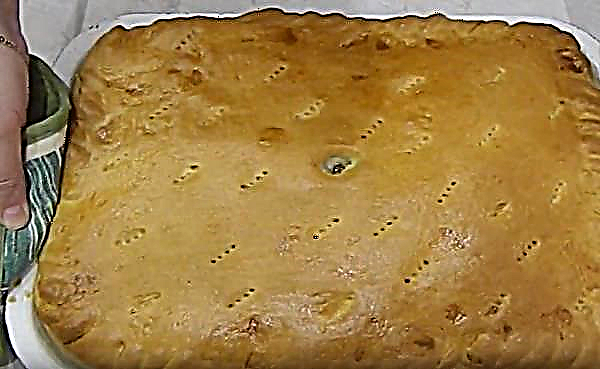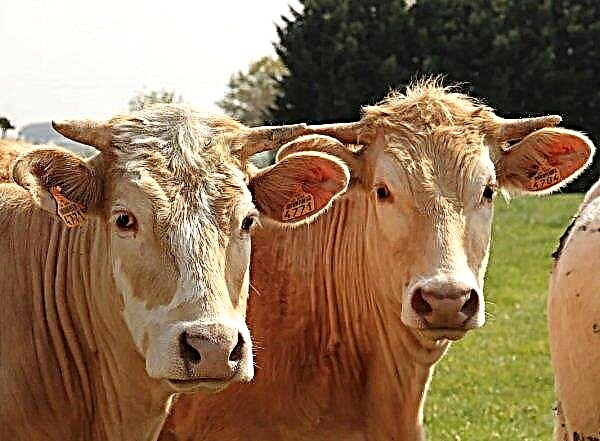Indyatki (or musky ducks) are unpretentious to food and quite hardy. In this article, we will discuss how and how to feed them in order to grow healthy birds.
How to feed ducklings
Maintaining the immunity of small indolets is more difficult than that of adults, so you need to feed them with special foods. The diet of the chicks also depends on their age - from newborns to menstruation. Consider each case.
Daily allowance
Indoor kittens can be taken away from the mother immediately after birth - they quickly get used to the environment. So that they do not freeze, they must be kept indoors. From the first days of life, chicks are taught to drink and eat. At first they are fed a boiled hard-boiled egg. Ducklings only react to food that moves, so you need to feed them in a special way. It lies in the fact that a finely chopped egg is thrown onto the backs of birds: when moving, the pieces fall to the ground, and the ducklings notice them.
Ducklings only react to food that moves, so you need to feed them in a special way. It lies in the fact that a finely chopped egg is thrown onto the backs of birds: when moving, the pieces fall to the ground, and the ducklings notice them.
It’s easier to drink daily chicks: pour water into a container, move it, stir it with a wand - this will attract their attention.Important! In the period of the first 24 hours of life, indoutos should be fed at least 8 times. If they do not eat on their own, you need to feed them from a pipette.
Weekly
From the second day, ducklings are fed more diversely. By the second day, corn, barley or oat flour is mixed with a boiled egg, to choose from. On the third day, fat-free cottage cheese in a small amount, the green part of the onion, the leaves of beets, spinach, and crushed grain are mixed into the egg. From the fourth day you can give them well-boiled and carefully chopped meat waste. From this moment, chicken eggs are removed from the diet. To make it easier for Indians to notice food, it is placed on dark dense paper. During the first week of life, the chicks are given water mixed with potassium permanganate.
To make it easier for Indians to notice food, it is placed on dark dense paper. During the first week of life, the chicks are given water mixed with potassium permanganate.
Monthly
At the age of one month, ducklings can digest boiled potatoes. Of course, it is impossible to feed them only - the root crop is used as an additive to the main feed in order to increase its volume. The allowed rate of potatoes in the diet is one fifth. At this age, ducklings can be given a more diverse food:
- combined feed consisting of crushed grain crops, bran, oilcake and meal (the norm per day is 150 g);
- potatoes (norm per day - 60 g);
- chopped beet tops, greens, nettle leaves;
- mineral additives (from 2 to 3 tablespoons per 10 ducklings);
- meat waste (norm per day - 20 g)
- salt (1 tablespoon per 10 indo-ducklings);
- chalk (2-3 tablespoons per 10 ducklings).
How to feed an adult bird
Adults are quite unpretentious to nutrition. Feed can be made up of almost any product available on the farm. Consider a few recipes.
Oat mix
Enough economical and nutritious option. It includes almost all trace elements necessary for an adult.
You will need:
- wheat - 250 g;
- corn - 100 g;
- oats - 400 g;
- wheat bran - 50 g;
- feed chalk - 20 g;
- shell - 30 g;
- fish or meat and bone meal - 20 g;
- premix - 19 g;
- table salt - 1 g.
 After all the ingredients are purchased and the desired weight is measured, the products must be mixed in the order specified in the list. The result is a little less than 1 kg of feed.
After all the ingredients are purchased and the desired weight is measured, the products must be mixed in the order specified in the list. The result is a little less than 1 kg of feed.
Compound feed with chickpeas
Very useful mix for birds. In this recipe, the proportions do not play a big role, but it is best to pour the ingredients in an amount of 1: 1.
Structure:
- corn kernels;
- chickpeas;
- sunflower seeds;
- oats;
- barley;
- wheat;
- meat and bone meal.
 Mix all the ingredients together and pour into the grinder. After that, it can be served to birds.
Mix all the ingredients together and pour into the grinder. After that, it can be served to birds.
Did you know? Ordinary ducks are very noisy - even with slight excitement they begin to quack, but musky ones do not quack, but hiss.
Feeding Indoor Dogs in Winter
There is no need to fundamentally change the diet of indolets in winter: grain should remain the basis of their diet. About 300 grams of feed per day per individual. In the winter season, the grain supports the muscle mass of ducks. You also need to prepare wet mixers. The best option would be a mixture of steamed barley, herbal flour and bran. It is important not to forget about vegetables, because they are the main source of vitamins in the winter. Musk ducks need to be fed carrots, beets, cabbage leaves or boiled potatoes. In cold weather, vitamin and mineral supplements should be added to the diet of ducks. They stimulate bird growth and enhance immunity. Also do not forget about mineral feed. The best option would be shells, crushed egg shells, salt and chalk.
In cold weather, vitamin and mineral supplements should be added to the diet of ducks. They stimulate bird growth and enhance immunity. Also do not forget about mineral feed. The best option would be shells, crushed egg shells, salt and chalk.
Important! For mineral feed, you need to select a separate feeder - it is not recommended to mix it with the main feed.
As you can see, the Indochka are unpretentious to food, and their diet is not much different from the diet of other poultry.

